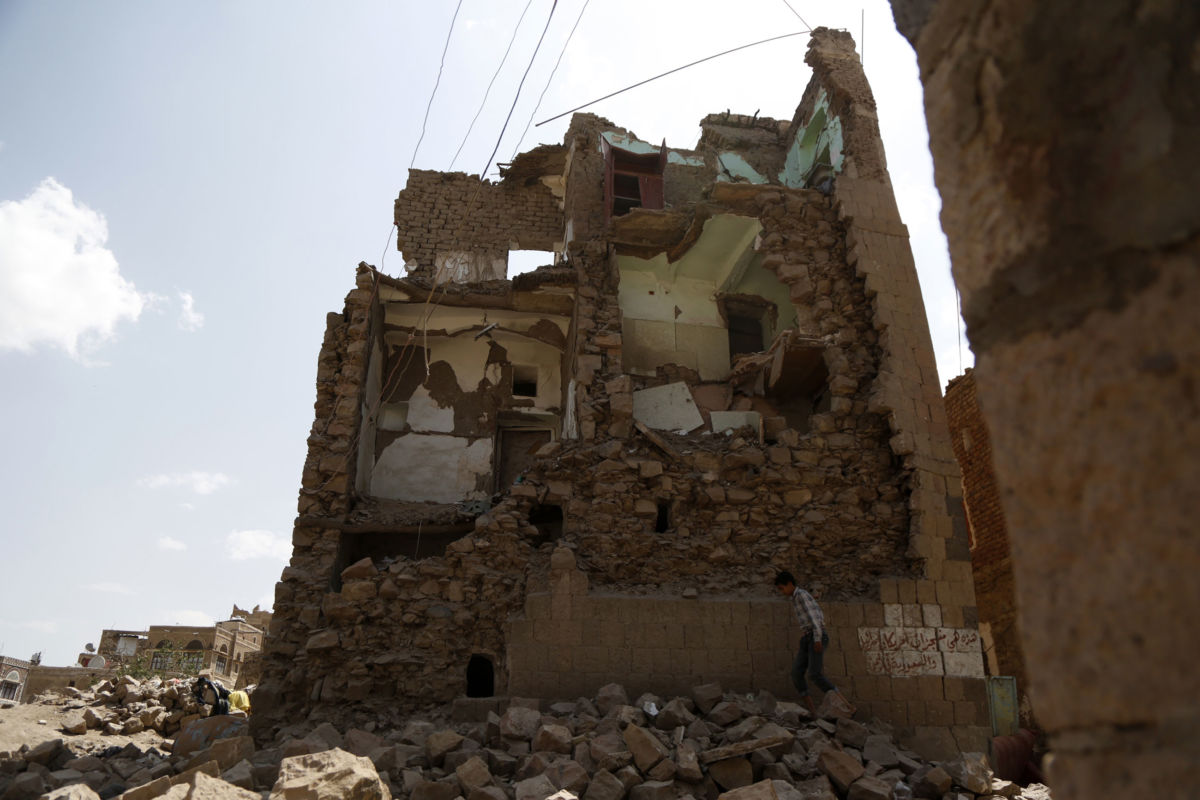Support justice-driven, accurate and transparent news — make a quick donation to Truthout today!
Anti-war groups and progressive lawmakers expressed cautious optimism this weekend after the Trump administration announced it would end its policy of refueling Saudi planes that are engaged in Saudi Arabia’s assault on Yemen—but called for bolder and broader policy changes to ensure an end to the attacks that have killed more than 15,000 civilians.
On Friday, the Washington Post reported that the refueling practice would end, with Saudi Arabia claiming in a statement that it now has the ability to refuel its own planes—a claim that US Defense Secretary James Mattis bolstered in his own comments on the policy changem but that drew skepticism from critics. The change came amid heightened calls from across the political spectrum to end the US military’s cooperation with the Saudis, following the killing of journalist Jamal Khashoggi.
Progressives including Rep. Ro Khanna (D-Calif.) and Sens. Chris Murphy (D-Conn.) and Bernie Sanders (I-Vt.) have called for an end to US participation since long before Khashoggi, a Saudi who wrote critically of his home country’s government, was killed by Saudi agents in October.
Khanna and Sanders both said they would take action in Congress to hold the administration accountable for its pledge to end refueling efforts.
Calling the decision one that “could avert a humanitarian crisis,” Khanna told The Intercept that Congress should now pass Senate Resolution 54 and House Resolution 138, which direct the president to remove US forces entirely from the war in Yemen unless they have been authorized by Congress.
“Similar to what we did in Somalia’s case, when the White House said that we weren’t going to have any intervention, Congress went ahead and passed both of the War Powers Resolution [measures], just to make sure that was definitive,” Khanna said, referring to Congress’s urging of President Bill Clinton to limit US involvement in Somalia in 1993.
“I’m glad that the Trump administration is ending US refueling of Saudi aircraft in Yemen’s devastating war… U.S. participation in this conflict is unauthorized and unconstitutional and must end completely,” Sanders said in a statement. “I will soon bring Senate Joint Resolution 54 back to the floor for another vote, so the Senate can compel an end to U.S. participation in the Yemen war as a matter of law, not simply as a matter of the president’s discretion.”
But other critics of the country’s involvement in the war, which has devastated the impoverished country since it began in 2015 as the Saudi coalition has supported the Yemeni government in its attempt to defeat the Houthis, say the US must go much further to ensure that the assault can’t continue.
“Why are we still helping the Saudis with targeting? Why are we still selling them the bombs at a discount?” Murphy said. “Now that it’s no longer a secret that the war in Yemen is a national security and humanitarian nightmare, we need to get all the way out.”
For over 3 years, the US has helped the Saudi-led coalition bomb Yemen with few constraints. Thousands of civilians died in airstrikes. When I asked the Pentagon if it tracked the Saudi aircraft we refueled and the targets struck, they said they didn’t. https://t.co/uhi4WKLD2H
— Elizabeth Warren (@SenWarren) November 10, 2018
“Congress and the public must not rest until the United States ends all military assistance to the Saudi-led coalition, which also includes consultation on targets, other intelligence, and weapons sales,” said Kate Kizer, policy director for Win Without War.
“When it comes to Yemen, talk is cheap and those on the brink of starvation can’t afford any political stunts. The world is watching to see if this is merely more empty promises or if the United States will finally use its power to end the suffering in Yemen,” she added.
Kevin Martin, president of Peace Action, also demanded that Congress, now with Democratic control of the House, use its new power to stand up to the executive branch and take further action to end the war.
“Congress must pass the Yemen war powers resolutions to bind the administration to this policy shift…and to reclaim its constitutional authority on the question of war,” Martin said. “This war was illegal from the start, and it’s time for Congress to stand up and say so.”
A terrifying moment. We appeal for your support.
In the last weeks, we have witnessed an authoritarian assault on communities in Minnesota and across the nation.
The need for truthful, grassroots reporting is urgent at this cataclysmic historical moment. Yet, Trump-aligned billionaires and other allies have taken over many legacy media outlets — the culmination of a decades-long campaign to place control of the narrative into the hands of the political right.
We refuse to let Trump’s blatant propaganda machine go unchecked. Untethered to corporate ownership or advertisers, Truthout remains fearless in our reporting and our determination to use journalism as a tool for justice.
But we need your help just to fund our basic expenses. Over 80 percent of Truthout’s funding comes from small individual donations from our community of readers, and over a third of our total budget is supported by recurring monthly donors.
Truthout has launched a fundraiser, and we have a goal to add 200 new monthly donors in the next 24 hours. Whether you can make a small monthly donation or a larger one-time gift, Truthout only works with your support.
